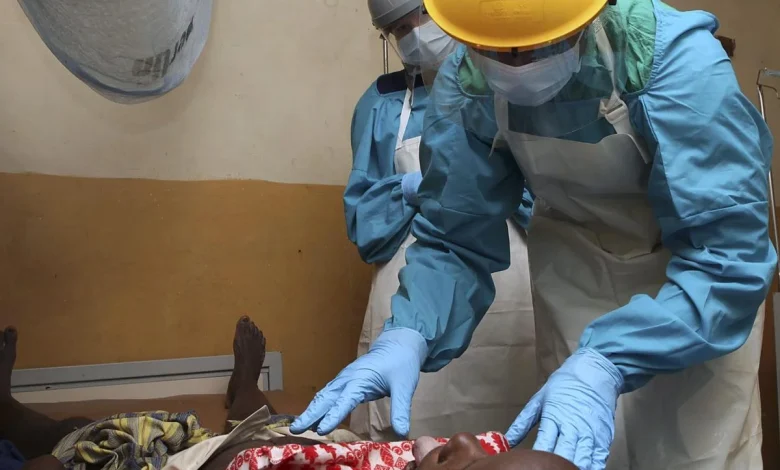Concern grows as 684,000 Nigerians die from preventable diseases every year

On Thursday, November 14, experts raised alarms about the rising number of deaths from non-communicable diseases (NCDs) in Nigeria, with over 684,000 lives lost each year. NCDs, unlike infectious diseases such as cholera or HIV, are long-term health conditions that are not passed from person to person, yet they are claiming an alarming number of lives in the country.
The shocking statistics were brought to light by Adewunmi Emoruwa, the Lead Strategist of Gatefield, at a two-day health summit held in Abuja. The summit, titled “Beyond65: Preventing the Quiet Epidemic,” focused on the growing crisis of NCDs in Nigeria.
Emoruwa emphasized the urgent need for action, stating, “NCDs are responsible for over 684,000 deaths annually in Nigeria. This is equivalent to wiping out an entire population of Luxembourg every single year. This preventable crisis can no longer be ignored.”
The rate of NCD-related deaths in Nigeria has been increasing steadily, rising from 24% in 2010 to 29% today. Emoruwa and other health professionals pointed to lifestyle factors such as unhealthy diets, excessive alcohol use, tobacco smoking, and lack of physical activity as the major drivers of this epidemic.
“Nigeria has a high prevalence of heavy drinking at 27.3%, and our salt intake is dangerously high at 5.8 grams per day—far above the World Health Organization’s recommended level,” Emoruwa explained. “Additionally, 48 million Nigerians are not physically active enough, putting them at greater risk for obesity, diabetes, and heart disease.”
Emoruwa also called for stronger government intervention, urging authorities to take immediate action to combat this silent health crisis. “The government must invest in messaging and public health education. We can’t wait for international organizations to take the lead; the Nigerian government needs to bring the money out now,” he said.
Gatefield’s Board Co-chair, Sa’adatu Hamu-Aliyu, stressed that the low life expectancy in Nigeria—currently just 52 years—was a direct result of NCDs. “In comparison, life expectancy in countries like Europe, Japan, and Canada exceeds 80 years,” she said. “People in developed countries live at least 20 years longer than those in low- and middle-income countries.”
As part of its health strategy, Gatefield proposed five key interventions aimed at reducing preventable deaths and improving life expectancy: improving national diets, reducing tobacco use, supporting mental health, promoting physical activity, and enacting policies that regulate unhealthy foods and beverages.
Former CEO of the Federal Competition and Consumer Protection Commission, Babatunde Irukera, also called for a robust national policy to address the NCD crisis. “A combination of hard and soft infrastructure, from healthcare facilities to trained caregivers, is essential to ensuring accountability and better care for Nigerians,” he said.
Dr. Uche Okenyi, a medical expert from Nova’s Place Hospital in Lagos, explained that NCDs include conditions like hypertension, asthma, cancer, and stroke. “These diseases are often linked to genetics, lifestyle choices, and environmental factors. While they can’t be passed from person to person like cholera or tuberculosis, they are just as dangerous,” he said.
Okenyi emphasized that both the government and individuals have important roles in reducing the number of deaths from NCDs. “Government should focus on public education about the lifestyle factors that contribute to these diseases. It’s also crucial to create an environment that encourages healthy living,” he said. “On the individual side, lifestyle changes such as avoiding smoking, reducing alcohol intake, and staying active are essential.”
The cost of managing NCDs is a significant burden on the government, as treatments for conditions like cancer, diabetes, and heart disease can be very expensive. These costs strain the healthcare system and reduce the quality of care for other health issues.
Professor Anthony Ugwu, a radiography expert from Nnamdi Azikiwe University in Anambra State, echoed the need for a combined effort to tackle NCDs. “When individuals make healthier lifestyle choices and the government provides regular health education, we can start to turn the tide on this crisis,” he said.
He also highlighted the broader impact of NCDs on the country’s economy. “Beyond the loss of lives, NCDs contribute to increased poverty levels as people spend more on healthcare and are less able to contribute to the economy due to illness.”
The increasing death toll from non-communicable diseases is a pressing concern for Nigeria’s future. If the country doesn’t take immediate steps to address the root causes and raise awareness, the health and economic challenges will only grow worse.





